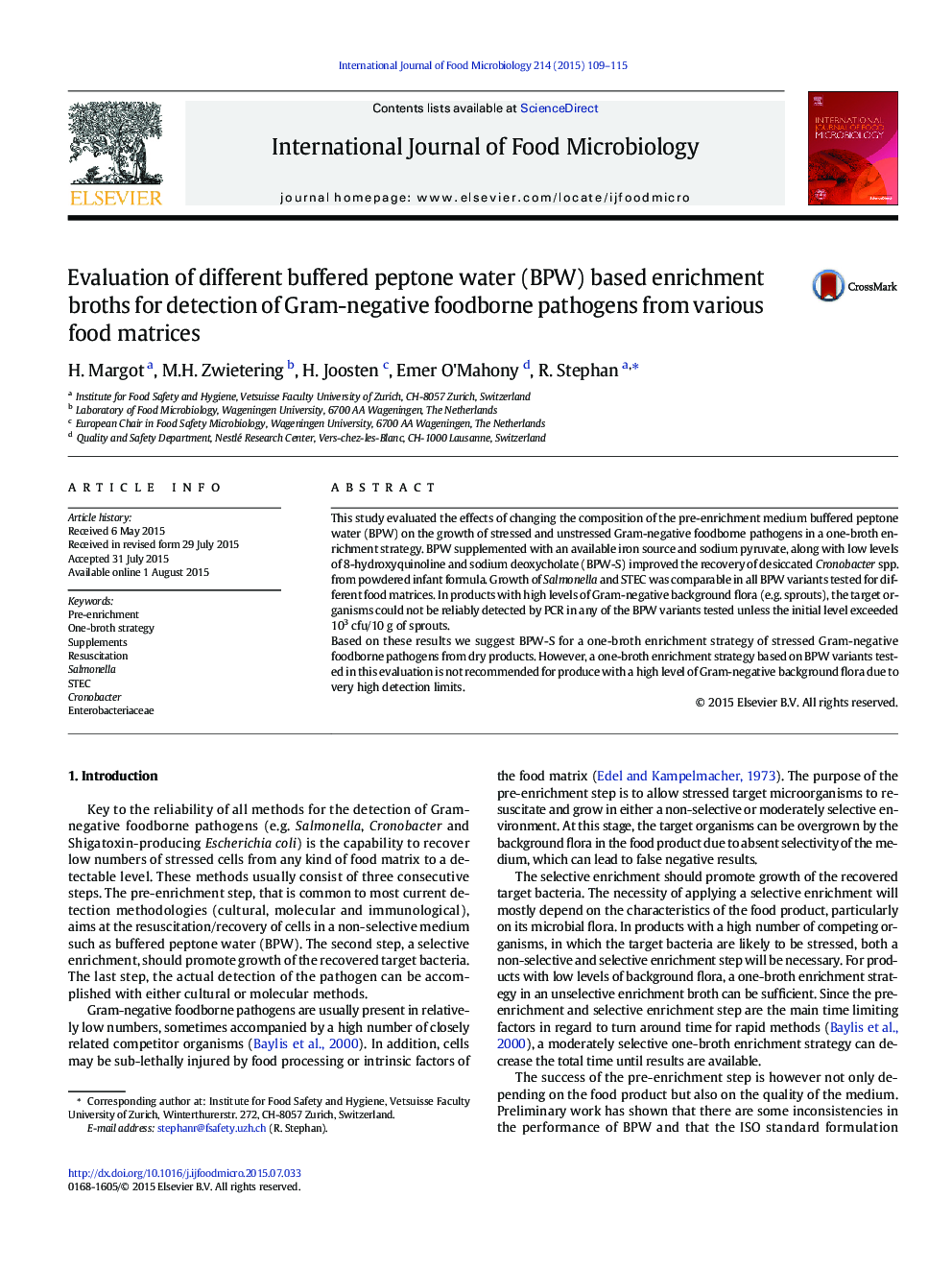| Article ID | Journal | Published Year | Pages | File Type |
|---|---|---|---|---|
| 4366466 | International Journal of Food Microbiology | 2015 | 7 Pages |
•BPW-S improved resuscitation of desiccated Cronobacter spp. strains from powdered infant formula.•STEC and Salmonella strains did grow to the same colony counts in all tested enrichment media.•A BPW based one-broth enrichment for STEC and Salmonella detection is not recommended for sprouts.
This study evaluated the effects of changing the composition of the pre-enrichment medium buffered peptone water (BPW) on the growth of stressed and unstressed Gram-negative foodborne pathogens in a one-broth enrichment strategy. BPW supplemented with an available iron source and sodium pyruvate, along with low levels of 8-hydroxyquinoline and sodium deoxycholate (BPW-S) improved the recovery of desiccated Cronobacter spp. from powdered infant formula. Growth of Salmonella and STEC was comparable in all BPW variants tested for different food matrices. In products with high levels of Gram-negative background flora (e.g. sprouts), the target organisms could not be reliably detected by PCR in any of the BPW variants tested unless the initial level exceeded 103 cfu/10 g of sprouts.Based on these results we suggest BPW-S for a one-broth enrichment strategy of stressed Gram-negative foodborne pathogens from dry products. However, a one-broth enrichment strategy based on BPW variants tested in this evaluation is not recommended for produce with a high level of Gram-negative background flora due to very high detection limits.
